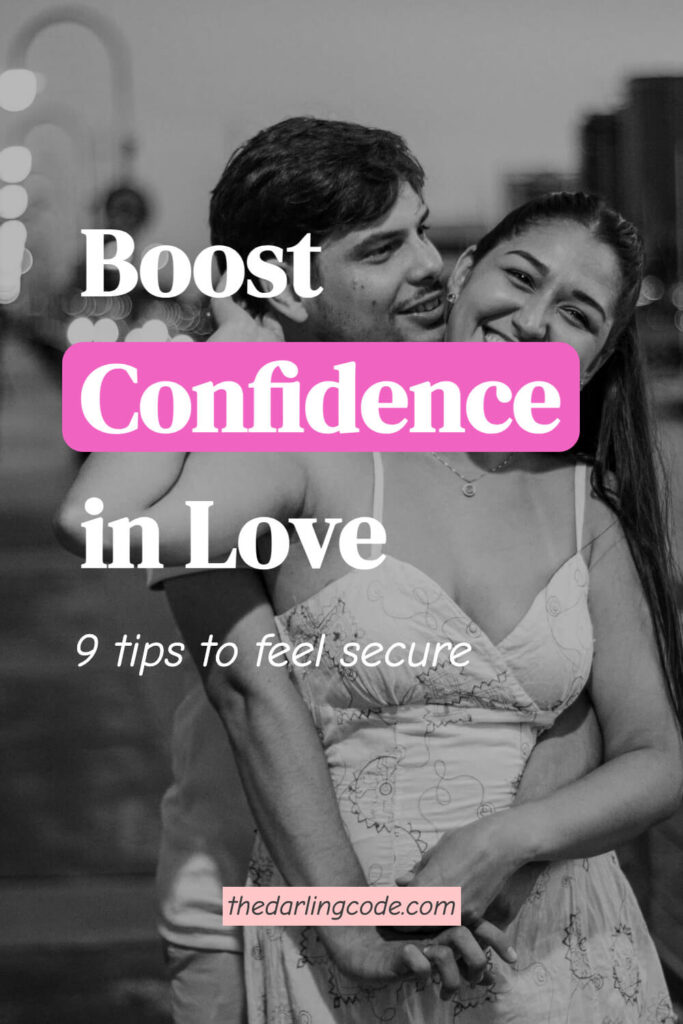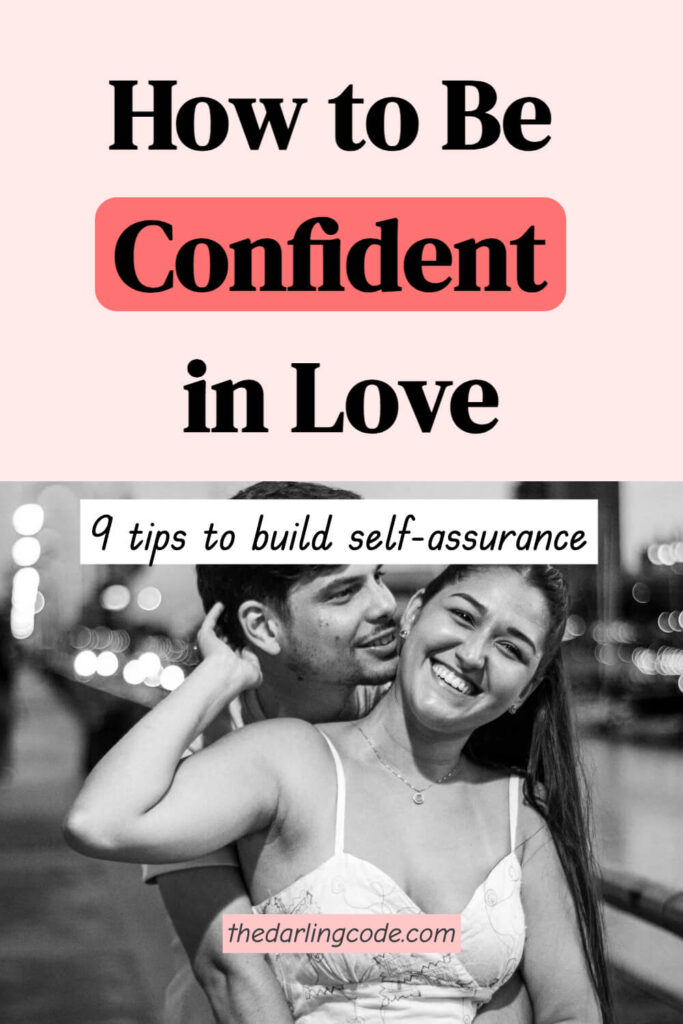How to Be More Confident in Love: 9 Gentle Truths
The experiences shared in this article are based on real emotional journeys, but all personal details are anonymized and used with the explicit written permission of the clients. Any resemblance to actual persons, living or dead, is purely coincidental. We are committed to treating all client stories with the utmost confidentiality and respect.
The Coffee Shop Epiphany
Three years ago, a client sat across from me at a cozy café, stirring her latte like it held the secrets of the universe.
“I keep dating people who make me feel like I’m auditioning,” she confessed. “Like I’m never enough.”
Her words stuck with me—not just because I’ve heard similar stories from dozens of clients, but because I’ve been there myself.
Confidence in love isn’t about being fearless or flawless.
It’s about showing up as your messy, imperfect self and trusting that you’re worthy of care anyway.
Over my years guiding clients (and navigating my own dating life), I’ve learned that confidence grows when we stop chasing “perfection” and start practicing small, intentional habits.
Let’s unpack nine of them.
Save this article for later—Pin it to Pinterest and come back when you need it! 📌

1. Know Your Non-Negotiables (Before Swiping Right)
The Problem: We often enter relationships hoping to “figure it out as we go,” only to realize we’ve compromised core needs.
The Fix: Grab a journal and answer: What three values must a partner align with for you to feel safe? For example: “They respect my career ambitions,” or “They prioritize open communication.”
A client once told me she stayed with someone who belittled her art career because “he’s great otherwise.” But “otherwise” doesn’t erase harm.
Knowing your non-negotiables acts like a compass—it helps you walk away sooner when something feels off, saving you months of self-doubt.
Why This Works: In my coaching practice, I’ve noticed that people who clarify their boundaries upfront spend 80% less time in situationships that drain their confidence.
Think of it as setting your emotional GPS before the journey begins.
Pause here: Which of your boundaries have you been bending lately?
2. Practice “Micro-Rejections” to Build Resilience
The Scenario: You’re terrified to text first, suggest a date idea, or voice a need.
The Strategy: Start small. Send that “Hey, I’d love to try that new ramen spot!” text. If they ghost or say no, notice how the world doesn’t end.
In my early 20s, I agonized for hours over whether to ask a guy out.
When I finally did, he said he wasn’t interested.
But guess what? I survived.
Each tiny risk trains your brain: Rejection isn’t fatal. My worth isn’t determined by someone’s “yes” or “no.”
Try This: For one week, practice one micro-rejection daily.
Compliment a stranger’s outfit.
Ask for a deadline extension at work.
Each “no” chips away at the fear of speaking up in love.
3. Rewrite Your “Love Scripts”
The Pattern: Many of us unconsciously replay stories from past relationships or childhood. (“I’m too clingy.” “Love always fades.”)
The Shift: Identify one negative belief and challenge it with evidence.
Example:
- Old script: “I’m bad at relationships.”
- New script: “My last relationship taught me what I don’t want—that’s progress.”
A client once realized she’d internalized her parents’ toxic dynamic as “normal.”
By reframing her story, she stopped accepting emotional unavailability.
Dig Deeper: Ask yourself: Where did this belief come from? Does it still serve me?
Sometimes, writing a letter to your younger self (“You deserved better”) can loosen old narratives.
4. Master the Art of the “Soft Check-In”
The Situation: You’re upset but fear seeming “needy.”
The Tool: Use gentle, specific language:
- “I felt hurt when you canceled plans last-minute. Can we talk about it?”
- “I’d love more quality time. What do you think?”
This isn’t about blaming—it’s about stating needs without apology.
Confidence isn’t needing reassurance; it’s knowing how to ask for it.
Real-Life Example: A client practiced this with her partner after he forgot their anniversary.
Instead of silent resentment, she said: “Celebrating us matters to me. Can we plan something special this weekend?”
His enthusiastic “Yes!” reminded her that clarity builds connection.
5. Date Yourself First
The Experiment: Plan a solo date doing something you’d normally do with a partner (e.g., a museum visit, hiking trail). Notice how you feel: Bored? Liberated?
I once took myself to a fancy restaurant after a breakup.
Sitting alone felt awkward at first, but by dessert, I realized: I’m pretty good company.
When you enjoy your own presence, you’ll never settle for someone who treats you as an option.
Pro Tip: Try a solo movie night with your favorite film.
Pay attention to how you talk to yourself during quiet moments.
Would you let a friend criticize you that harshly?
6. Normalize the “Unsexy” Conversations
The Myth: “If it’s meant to be, everything will flow naturally.”
The Reality: Healthy relationships require awkward talks about finances, conflict styles, or future goals.
A client avoided discussing her partner’s flaky behavior for months, fearing she’d “ruin the vibe.”
When she finally spoke up, he admitted he’d been struggling with anxiety—a conversation that deepened their connection.
How to Start: Use “I” statements and curiosity:
- “I’ve been thinking about how we handle disagreements. Can we explore what works for both of us?”
- “What does ‘commitment’ look like to you?”
Confidence means embracing the messy middle.
7. Let Go of “Proving” Your Worth
The Trap: Over-giving, people-pleasing, or downplaying your achievements to avoid intimidating others.
The Truth: You don’t need to shrink to be loved.
I worked with a brilliant woman who hid her PhD from dating apps, worried men would find her “too smart.”
But the right person will celebrate your light—not ask you to dim it.
Action Step: List three things you’re proud of (e.g., “I built a career from scratch,” “I’m a loyal friend”).
Read them aloud daily.
Confidence grows when you witness your own strength.
8. Create a “Confidence Bank” for Tough Days
The Struggle: Even the most self-assured people have moments of doubt.
The Solution: Build a toolkit before you need it.
Here’s mine:
- A notes app folder of kind messages from friends.
- A playlist of songs that make me feel powerful (Beyoncé’s “Flawless” is on repeat).
- A go-to comfort activity (for me, baking banana bread at 2 AM).
A client once shared that re-reading her old journal entries helped her see how far she’d grown.
“I used to cry over someone who didn’t text back,” she laughed. “Now I’m negotiating my dream salary.”
Your Turn: What’s one small thing that reminds you of your resilience? Stockpile those moments.
9. Learn to Sit with Uncertainty
The Dilemma: Love involves unknowns—Does he like me? Are we on the same page?—and our brains often treat ambiguity like a five-alarm fire.
The Strategy: Instead of seeking instant clarity, practice tolerating the “gray areas” while staying grounded in your worth.
Example: A client once panicked when her partner took two days to reply to a text.
She drafted three breakup speeches before he finally responded: “Sorry, my dog ate my phone charger.”
Sound familiar?
How to Practice:
- Name the Fear: Write down the worst-case scenario (“He’s losing interest”) and the best-case (“He’s just busy”).
- Focus on What You Know: “I know I’m someone who communicates openly. I’ll give it time and revisit this if it happens again.”
- Distract Your Nervous System: Do a 5-minute kitchen dance party to Lizzo or reorganize your bookshelf by color.
Why This Works: Over my years coaching, I’ve seen clients who master this skill avoid self-sabotage (like sending angry midnight texts) and build trust in their own judgment.
Uncertainty doesn’t vanish, but it stops controlling you.
Final Words from The Darling Code
Confidence in love isn’t a destination—it’s a daily practice. Start small:
- Write down one non-negotiable tonight.
- Send that text you’ve been overthinking.
- Bookmark this article and revisit it when self-doubt creeps in.
You’re allowed to stumble. You’re allowed to ask for more. And remember: The right love won’t make you question whether you’re “enough.”
With heart,
The Darling Code
P.S. If this resonated, save it to your Pinterest “Self-Love” board or share it with a friend who needs it.
Your tiny act of courage today? Write down three things you love about yourself—no disclaimers allowed. 💌
Got value from this article? Pin it to Pinterest for easy reference and help others discover it! 🌟


ABOUT THE AUTHOR
Vivienne, Relationship Coach & Self Love Coach
Vivienne is a Relationship Coach and Self-Love Coach who believes the key to great relationships starts with YOU. She helps individuals and couples build confidence, set healthy boundaries, and create connections that truly honor who they are.






